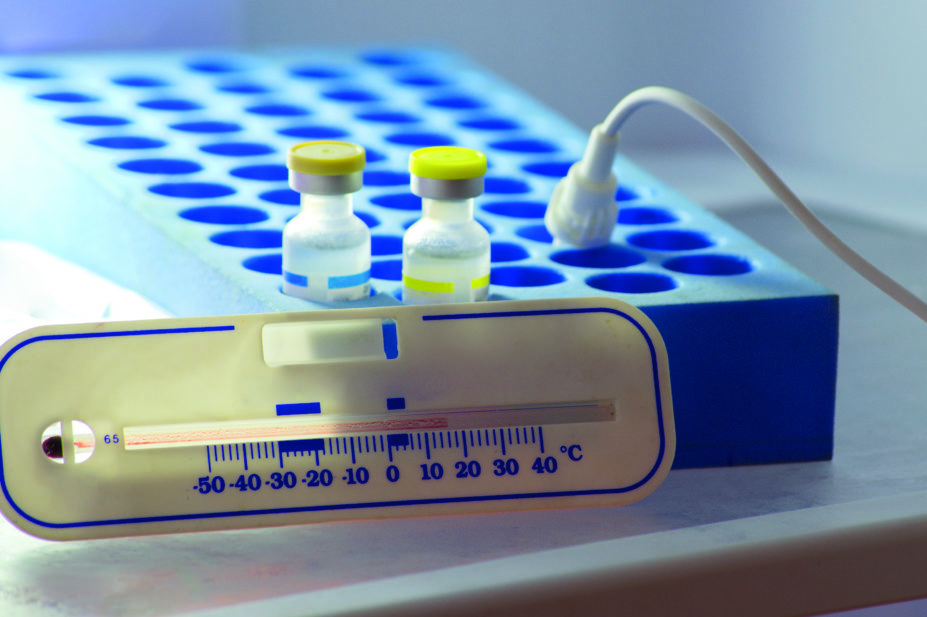
Shutterstock.com
Biological substances based on proteins, such as vaccines, typically degrade at room temperature over time as the proteins unfold and denature. Storage and distribution therefore relies on a continuous network of refrigeration called the “cold chain”. This process is costly and loss of vaccines through breaks in the chain has a significant impact on global public health.
For the first time, researchers have demonstrated that proteins in solution can be temporarily encased in a tiny silica network, or cage, and subsequently released back into solution, intact and functional.
They found that when a protein in solution is mixed with silica, it surrounds the protein, quickly building up many layers to encase the protein. The “ensilicated” protein can withstand heat of 100 degrees celcius and, once the silica coating is removed, the protein functions as normal.
Publishing their findings in Scientific Reports
[1]
(online, 24 April 2017), the researchers conclude that the technique could transform vaccine availability worldwide by eliminating the cold chain.
References
[1] Chen YC, Smith T, Hicks RH et al. Thermal stability, storage and release of proteins with tailored fit in silica. Sci Rep 7 2017;46568. doi: 10.1038/srep46568


